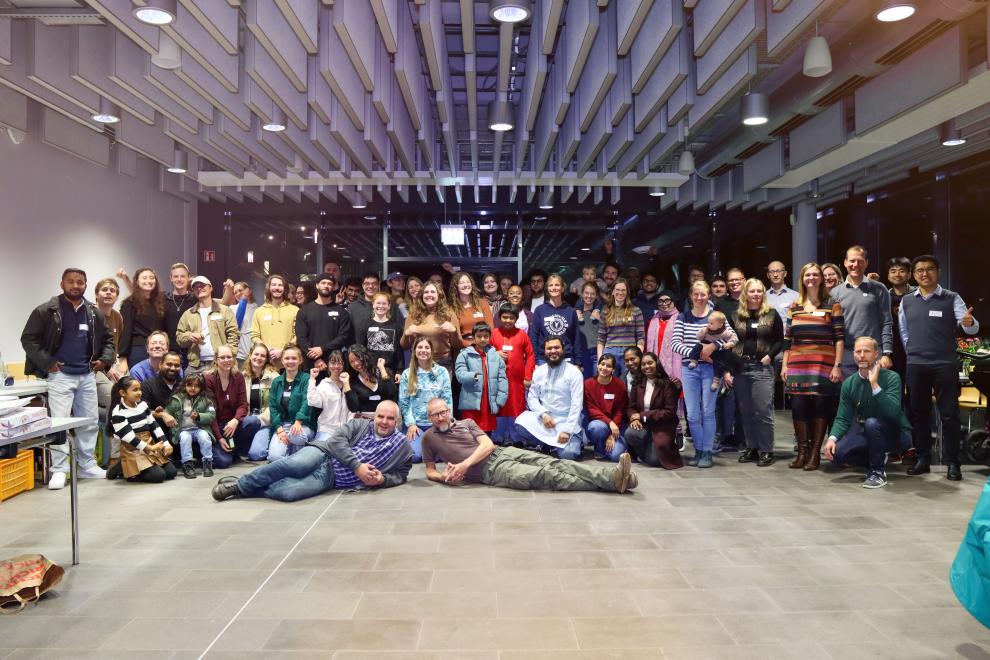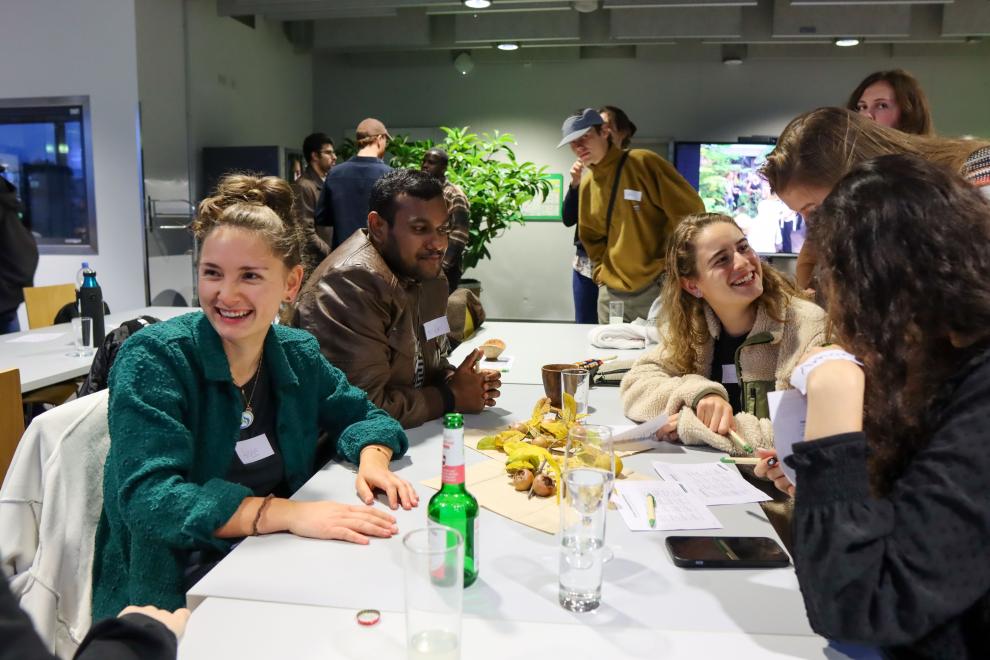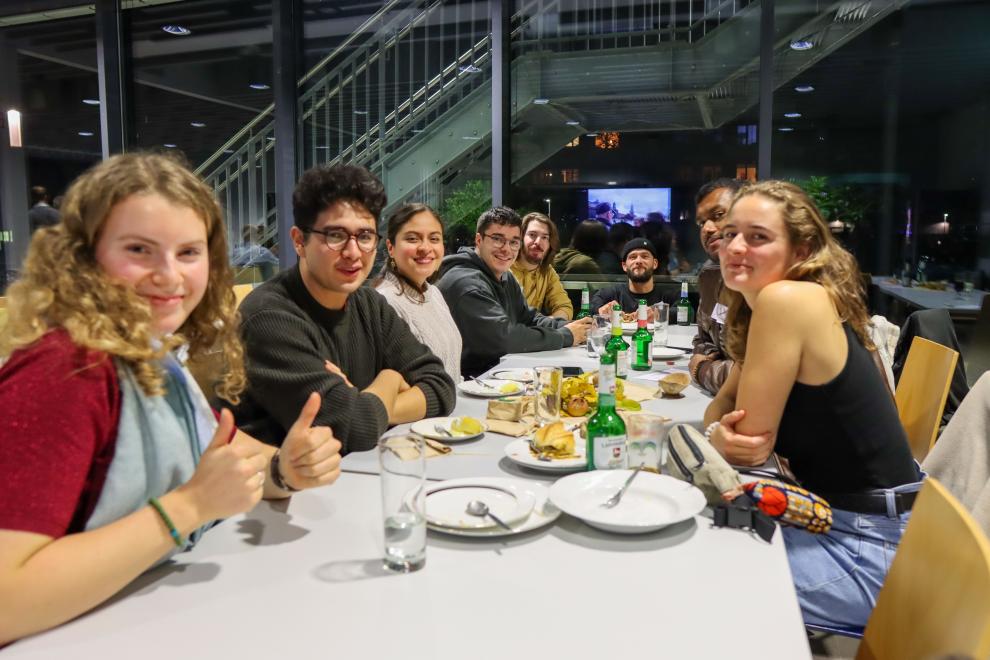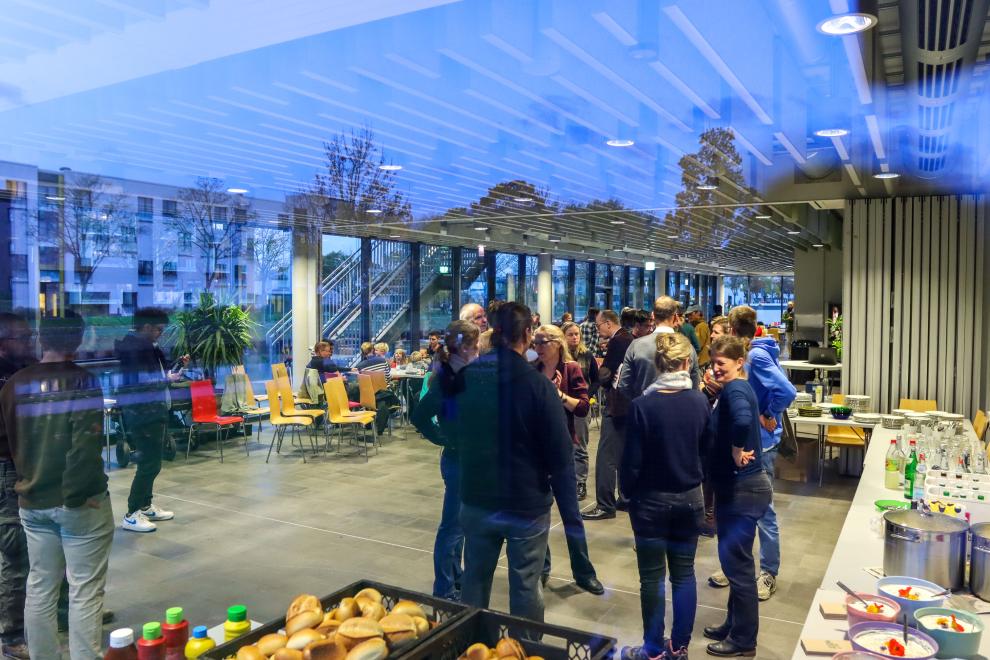Fifteen Years Rooted and Growing: Sustainable Agriculture Alumni Reunion
On October 30th, the Faculty of Life Sciences and the Sustainable Food Systems Research Center hosted a 15th Anniversary Alumni Party for the Sustainable Agriculture program, an evening that underscored the program’s international footprint and cohesive community.
The gathering brought together a colorful and diverse crowd of around 100 students, alumni, researchers, and university staff, with German participants joined by guests from Sri Lanka, India, Norway, Poland, and beyond—an accurate reflection of the global network the program has built over time. The intention of the night was clear from the outset. Professor Matthias Kleinke, addressing alumni from the program’s first year as well as current students, put it succinctly: “Our aim is to connect you, bring you together, and celebrate the past 15 years.”
Over the course of the evening, Professors Florian Wichern and Matthias Kleinke traced how the faculty and program have developed across 15 years, highlighting milestones, growth, and impact. They offered an unvarnished, data-led account of the program’s path from its “chaotic” beginnings to its present profile anchored by concrete figures and candid reflections. Prof. Wichern reported that “To date, we have about 227 graduates in Sustainable Agriculture - 104 men and 123 women.” He added, “We gave the curriculum a slight facelift in 2018, and we’re planning another reaccreditation with a few adjustments next year.” In characteristic dry humor, Prof. Kleinke noted the program’s continuity as well as change: “We’re changing a few slides—tuning the well-functioning tractor, not rebuilding it or buying a new one.”
International excursions emerged as a defining experience. Since 2015, when the first trip went to France, the program has maintained annual study tours. “Happy that we were able to keep going for 10 years already, with a little break in between, thanks to a little virus,” as Prof. Wichern remarked. The most recent destination, Benin, was “the first which we managed to go to Africa”, expanding the geographical and thematic reach of field-based learning. The memories are vivid: from “snow and freezing rain” at altitude in Poland to a day in Albania when, as Prof. Kleinke recalled, “on one day went into the snow on the top of the mountains and in the evening we were swimming in the Adria”. Parallel to teaching, research capacity has grown markedly. Since 2021, the Sustainable Food Systems Research Center has expanded to roughly 40 team members, with work on five continents and a rising slate of publications and active projects, Prof. Wichern said.
Growth has been steady by enrollment and increasingly international by composition. Cohorts average 42 incoming students per year. A stronger contribution from international students has shaped recent intakes, and in the last two years more than 80% of students were from outside Germany. The faculty regards this global mix as an asset while also aiming to “welcome even more students from Germany”, seeking balance without diluting the cosmopolitan character. Outcomes after graduation reinforce the program’s impact. According to survey results, “60% of those that were interviewed here start a master program”, while “40% find a job within 4 months”. Regional embeddedness is notable as well: “a large number of people that remain here in the region and find a job in the region, 44%”.
With the presentations wrapped up, the room shifted from slides to stories. Around the buffet, prepared with care by student assistants, alumni, students, and staff compared field memories, swapped research ideas, and reconnected with classmates. The organizing team earned warm thanks for an evening that made space for both reflection and new connections. Before goodbyes, everyone gathered for a group photo closing the night on the same note that has sustained the program for 15 years: showing up for one another.




